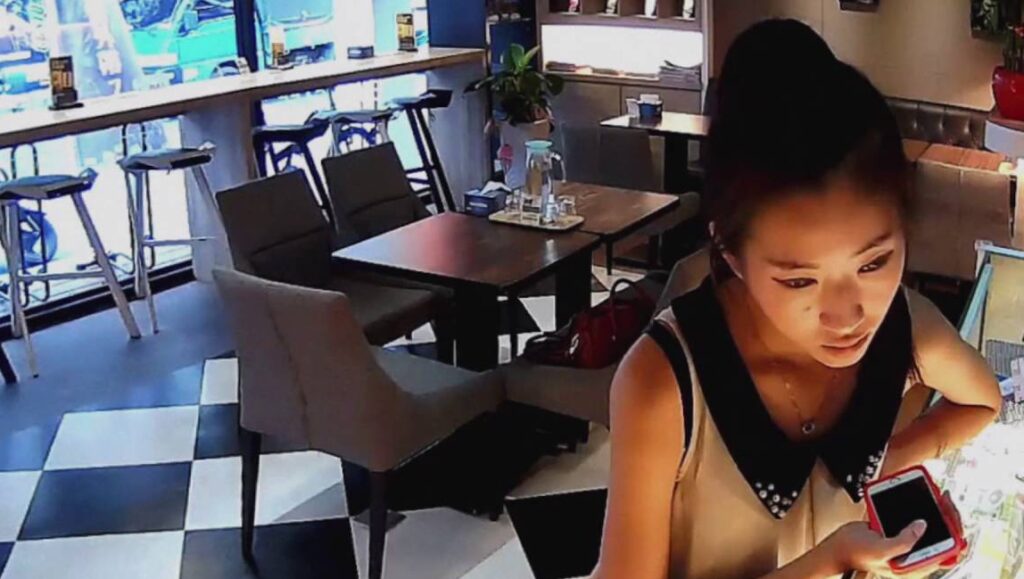Dragonfly Eyes, the first feature film from Beijing installation artist Xu Bing, is at least sociologically interesting: It’s comprised largely of repurposed CCTV surveillance camera footage that’s been tweaked and fussily annotated (“road cement grey #15273”) so as to give the impression of an omniscient, voyeuristic A.I. straight out of science fiction. The irony here is that the types of behaviors Xu views through this futuristic lens are no different than those found in contemporary Chinese society: sharp divisions of class, social disassociation, fragile egoism, and an obsession with surface level beauty. Even the desensitized attitudes toward the deaths that are (troublingly) actually depicted in some footage Xu includes (of traffic accidents, building collapses, and drownings) seem at first an extension of the deep — and not altogether unfounded — cynicism Xu harbors for his culture’s increasingly unmoored sense of reality.
As a collage representation of a suppressed reality — the recorded record, unbroadcasted, of moral decay in a too rapidly modernizing China — Dragonfly Eyes is as frequently disturbing and revealing as Huang Weikai’s 2009 found footage film Disorder. But Xu has also built a narrative into this document: A linearly told, broadly dramatized love story about two marginalized people pushed further and further apart by the mounting consequences of defending their own dignity. It’s this element of the film that tends to scan less as a targeted cultural commentary than an expression of pure misanthropy. It also narrows the implications of Xu’s most disturbing images, suggesting a metaphorical context that unequivocally cheapens them.
Published as part of New York Film Festival 2017 | Dispatch 5.


Comments are closed.